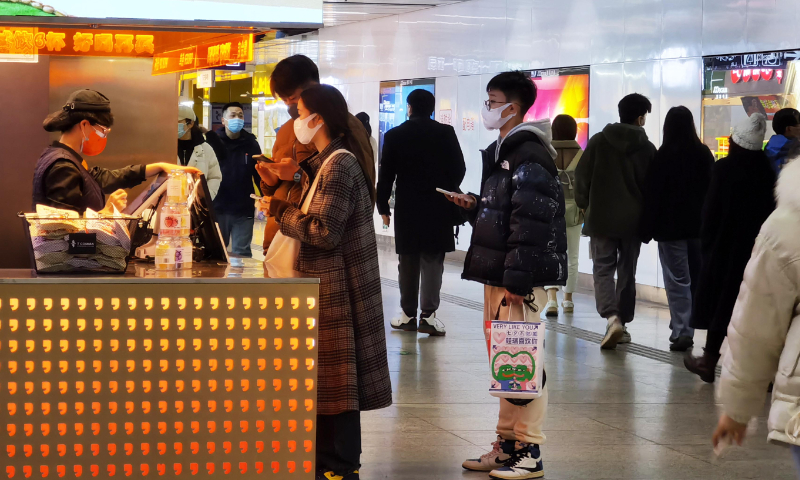Ahead of the annual Double 12 shopping festival and a number of holidays, various Chinese cities have taken proactive measures, including issuing coupons, to boost consumer spending, aiming for a rapid consumption recovery after China optimized its anti-COVID-19 measures.
Suzhou in East China’s Jiangsu Province kicked off the Double 12 shopping festival on Sunday night, which will last through February 5. More than 12,000 enterprises have signed up for the event to offer a total of 15 billion yuan ($2.15 billion) worth of discounts, according to the official WeChat account of the Suzhou city government.
Guangzhou in South China’s Guangdong Province issued coupons worth 30 million yuan to encourage spending on catering, supermarkets, e-commerce and accommodations.
Wuhan in Central China’s Hubei Province issued 10 million yuan worth of coupons that can be used for purchasing home appliances.
These moves come after China on Wednesday released 10 optimized anti-epidemic measures, lifting restrictions on cross-provincial travel and allowing people with mild or asymptomatic infections to isolate at home instead of centralized quarantine.
The stimulus and the issuance of the new guidelines are set to offer a significant boost for China’s consumption recovery, experts said.
The 10 new measures would add a sense of certainty for consumption growth and pent-up consumer demand, Yang Delong, chief economist at Shenzhen-based First Seafront Fund Management Co, told the Global Times on Monday.
“The second wave of consumption growth will be stimulated by an economic recovery that would fill people’s wallets,” Yang said.
Tian Yun, a veteran economist based in Beijing, expects a gradual recovery of consumption month-on-month starting in December and a full recovery in the spring of 2023, with a return to the pre-pandemic level in 2019.
Retail sales hit 41.16 trillion yuan in 2019, and totaled 36.06 trillion yuan from January to October in 2022, according to data from the National Bureau of Statistics.
Tian noted that the consumption vouchers will help boost the economy to some extent, but the main driving force for the recovery of consumption lies in follow-up support to ensure sufficient supplies and corresponding emergency management.
“With the improvement of supplies, especially medical supplies, the public will be more psychologically prepared for the opening up, and the recovery of consumption will be further consolidated,” Tian said.
Traveling, catering, lodging and on-site retail businesses are expected to take the lead in the consumption recovery, experts said, expecting the coming New Year’s Day and the Chinese New Year will usher in peak passenger flows for family visits and leisure trips.
There will be a significant increase in consumption for the Double 12 shopping event due to a small year-on-year and month-on-month base, Zheng Lei, chief economist at Samoyed Cloud Technology Group, told the Global Times on Monday.
“The industries that will benefit the most from the optimized epidemic response are passenger transport, catering, accommodation and on-site retail, which were hit hard by the epidemic,” said Zheng.
The distribution of daily consumption vouchers for spending at restaurants, supermarkets, department stores and home appliances retailers will help stimulate local consumption to the maximum extent. By doing so, spending during the Double 12 event will be extended to the New Year and the Spring Festival in mid-January, and the whole consumer market will warm up, according to Zheng.
Data showed that searches for flight tickets, train tickets and hotels surged on booking platforms after the release of the new measures.
According to data from travel agency Ctrip, searches for travel in 2023 increased by more than 900 percent in the week ended Wednesday, compared with the same period last year.
According to data from Meituan, the search for keywords such as “New Year” and “New Year countdown” increased by more than 797 percent month-on-month and bookings for New Year’s Day were up 606 percent from the previous week.













